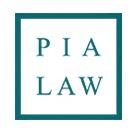Children and Concussions - The Importance of "Brain Rest"
January 7, 2015
Research on concussions in children now indicates that even the mildest concussions need to be treated with “brain rest” to avoid injuries that can possibly have long-lasting effects on children.
Dr. Ellemberg, a neuropsychologist at the Université de Montréal is conducting the world’s first large-scale study of the effects of concussions on children. His five-year study will research concussions in more than 200 children.
Dr. Ellemberg states “The traditional view has been that children’s developing brains would recover faster from injury than adults’ brains. But we’re finding evidence that a child’s brain could actually be more sensitive to the effects of concussion”.
Dr. Ellemberg cautions that his results aren’t a call for kids to avoid sports and other activities. Rather, he says, it’s time for parents and coaches to be aware of concussion symptoms and give young brains a chance to heal.
“If we take the proper precautions after a concussion we can significantly reduce the impact of the concussion on the brain,” says Dr. Ellemberg.
Any blow to the head, face or neck, or somewhere else on the body that causes a sudden jarring of the head may cause a concussion, such as being hit in the head with a ball, falling off a bike or being checked into the boards in hockey.
The symptoms of a concussion may include:
• Loss-of-consciousness
• Dizzy or disoriented
• Headaches, nausea or vomiting
• Ding or buzzing sounds immediately after injury
• Seeing stars on impact and later double or blurry vision
If you suspect that your child has sustained a concussion, your child should stop playing the sport right away. The most important treatment for a concussion is rest. Like any physical recovery, the invisible mental recovery must also occur and this takes time. That means not exercising, bike riding, playing video games or working on the computer. Children may have to stay home from school because schoolwork may make their symptoms worse. Children who go back to school or resume activities before they are completely better are more likely to get worse and to have symptoms longer.
A child who has been diagnosed with a concussion should see a doctor immediately if symptoms get worse, such as:
• being more confused;
• worsening of a headache;
• vomiting more than once;
• not waking up;
• having trouble walking;
• experiencing a seizure; or
• behaving strangely.
Problems caused by a head injury can get worse later that day or night. A child should not be left alone and should be checked on through the night. If there are any concerns about a child’s breathing or sleep, wake her up. Otherwise, let her sleep. If she seems to be getting worse, see a doctor immediately.
For more information visit the Canadian Paediatric Society website HERE.
If your child has suffered brain injury it is important to contact a personal injury lawyer in order to determine your legal rights. Click HERE to contact the PIA.
To view the original article, click HERE.




